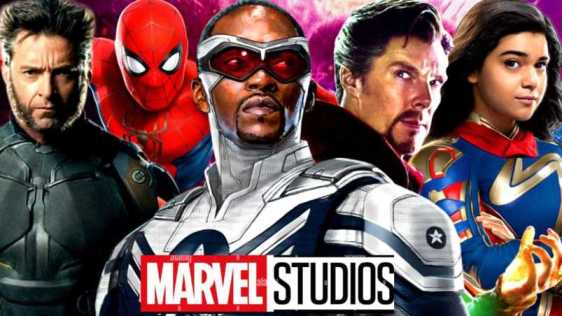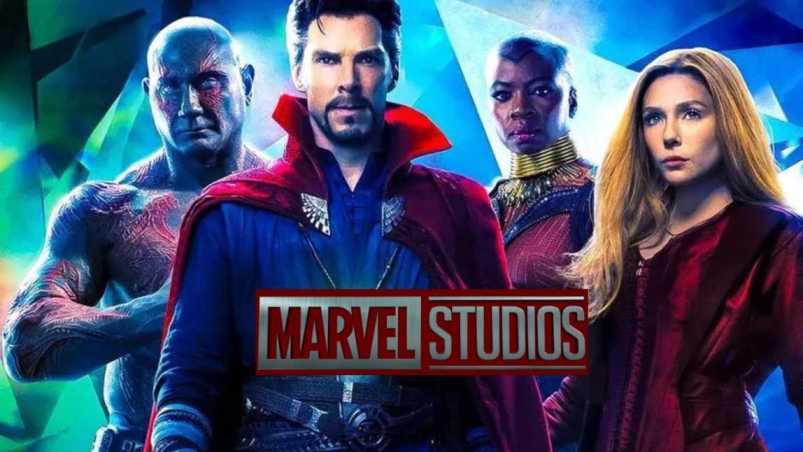As Disney navigates cutbacks and strategic shifts, Kevin Feige, the president of Marvel Studios, has confirmed a pivotal alteration to the trajectory of upcoming MCU projects. In the ever-evolving landscape of the Marvel Cinematic Universe (MCU), fans are accustomed to surprises on and off the screen. However, the latest revelation comes not from a post-credits scene but from Marvel Studios.

Amid speculation and concern sparked by recent industry developments, Feige stepped forward to address the elephant in the room. In an exclusive interview with Entertainment Weekly, he disclosed that one significant change would affect the forthcoming MCU lineup. While Feige didn’t delve into exhaustive detail, he assured fans that the essence of Marvel storytelling remains intact, emphasizing adaptability and innovation as guiding principles.
The key change, according to Feige, revolves around the scale and scope of certain projects. With Disney streamlining operations and recalibrating priorities, Marvel Studios finds itself recalculating its approach. While the MCU has become synonymous with grandiosity and interconnected narratives, Feige hinted at a more focused and streamlined direction for select future endeavors.
Marvel Is Going To Create More Than It Can Produce: Kevin Feige

In a move that reflects the shifting landscape of the entertainment industry, Marvel Studios President Kevin Feige has confirmed a pivotal change in the approach to upcoming projects within the Marvel Cinematic Universe (MCU). Against the backdrop of recent cutbacks at Disney, Feige revealed that Marvel will be focusing on development efforts for a greater number of projects than it will ultimately produce.
This strategic shift marks a departure from Marvel’s traditional modus operandi, which typically involved greenlighting and producing a relatively fixed number of films and series within a given timeframe. However, faced with evolving market dynamics and corporate imperatives, Marvel Studios finds itself adapting its approach to project development and production.
Feige’s announcement underscores the studio’s commitment to maintaining a robust pipeline of creative content while optimizing resource allocation and mitigating financial risk. By prioritizing development over immediate production, Marvel aims to foster a diverse array of storytelling possibilities while ensuring that only the most promising projects progress to the production phase.
While Feige did not delve into specific details regarding the rationale behind this strategic pivot, industry analysts speculate that it may be a response to Disney’s broader restructuring efforts and a desire to streamline operations within Marvel Studios. By front-loading the development process, Marvel can afford to be more selective in greenlighting projects, focusing resources on those with the greatest potential for success.
This shift also aligns with broader trends within the entertainment industry, where studios are increasingly prioritizing development as a means of cultivating intellectual property (IP) and building long-term franchise value. By investing in the creative incubation of new ideas and characters, Marvel can position itself for sustained growth and relevance in an ever-evolving marketplace.
For fans of the MCU, this change may signal a more diverse and expansive slate of projects in the years to come. With Marvel devoting resources to the development of a greater number of concepts, audiences can expect to see a wider range of characters and storylines explored across various mediums, from film and television to streaming platforms and beyond.
At the same time, however, this approach introduces an element of uncertainty, as not all projects in development are guaranteed to see the light of day. While some may ultimately be greenlit for production, others may be shelved indefinitely or undergo significant revisions before moving forward. Nevertheless, Feige’s assurance that Marvel remains committed to delivering high-quality content suggests that fans can trust in the studio’s judgment when it comes to selecting which projects to pursue.
As Marvel Studios continues to navigate the ever-changing landscape of the entertainment industry, one thing remains clear: the MCU’s future is as bright and exciting as ever. By prioritizing development as a strategic imperative, Marvel is poised to continue its legacy of innovation and storytelling excellence for years to come, ensuring that the Marvel Cinematic Universe remains a beacon of creativity and inspiration for audiences around the world.
What Effect Will the Cuts at Marvel Studios Have on Upcoming Projects?
In a move that has sent ripples through the Marvel Cinematic Universe (MCU) fandom, Marvel Studios President Kevin Feige has confirmed a significant change in the wake of Disney’s recent cutbacks. As the entertainment industry undergoes a period of restructuring, fans are left wondering: what do these Marvel Studios cutbacks mean for the future of MCU projects?
Feige’s revelation sheds light on the studio’s response to the broader corporate landscape. While specific details remain scarce, it’s evident that Marvel Studios is recalibrating its approach to project development and production. With Disney streamlining operations and tightening budgets, Marvel finds itself at a crossroads, forced to make strategic decisions to adapt to the evolving industry dynamics.
One key implication of these cutbacks is the potential impact on the scale and scope of future MCU projects. Traditionally known for its blockbuster spectacles and interconnected storytelling, Marvel may be compelled to scale back on certain projects or explore more cost-effective production models. This could result in a shift towards smaller-scale productions or a greater emphasis on character-driven narratives, as the studio seeks to maximize creative output within budgetary constraints.
Furthermore, these cutbacks may necessitate a more selective approach to greenlighting projects within the MCU. With resources at a premium, Marvel Studios may opt to prioritize projects with the highest potential for commercial success or those that align most closely with the studio’s strategic objectives. This could mean fewer new IPs and a greater focus on established franchises and characters with proven track records at the box office.
In addition to potential changes in project scale and selection, Marvel Studios’ cutbacks may also impact the studio’s expansion into new mediums and platforms. As Disney shifts its focus towards streaming and direct-to-consumer content, Marvel may need to reassess its approach to content distribution and explore new avenues for reaching audiences. This could involve a greater investment in original programming for Disney+ or partnerships with other streaming services to broaden the MCU’s reach.
Fans should be somewhat reassured by Feige’s statement that Marvel is still dedicated to producing high-caliber material, despite the concerns these reductions have brought about. Marvel’s lengthy history of innovation and success indicates that the MCU is well-suited to withstand the storm and come out stronger on the other side, even though the studio may need to make difficult decisions shortly.
Ultimately, the full extent of Marvel Studios’ cutbacks and their implications for future MCU projects remains to be seen. As the studio continues to navigate the ever-changing landscape of the entertainment industry, fans can expect a period of adjustment as Marvel adapts to new realities and explores new opportunities for creative expression. In the end, one thing is certain: the MCU’s legacy of storytelling excellence will endure, no matter the challenges it may face along the way.
Some exclusive films from Marvel Studios:
“Shang-Chi: Legacy of the Martial Arts”
“Morbius: Legacy of the Living Vampire”
“Red Hulk: Gamma Protocol”
“Nimrod: Legacy of the Sentinels”
“Moon Knight: Legacy of the Crescent Crusader”
“Black Widow: Red Ledger”
“Eclipse: Rise of the Celestials”
“Infinity Crusade: The Gauntlet’s Legacy”
“Nebula: Shadows of Redemption”
“Mystique: Legacy of Lies”
“Spectra: The Chronicles of Quantum”
“Asgard Ascendant: The Allfather’s Fury”
“Nova Corps: Guardians of the Galaxy”
“S.H.I.E.L.D.: Code Red”
“Silver Surfer: Legacy of the Herald”
Marvel was owned by whoever before Disney?
Marvel Entertainment Group was acquired by Ronald Perelman’s MacAndrews & Forbes Holdings for $82.5 million from New World on January 6, 1989. Marvel Productions was absorbed into New World’s TV and film division and was not part of the agreement. Perelman described it as “a mini-Disney in terms of intellectual property.”
What is Marvel preparing for?
Black Panther: Wakanda Forever will wrap up Phase Four, according to Kevin Feige at Marvel Studios’ July 2022 San Diego Comic-Con panel. Ant-Man and the Wasp: Quantumania, Guardians of the Galaxy Vol. 3, The Marvels, Secret Invasion, and Ironheart will comprise Phase Five.
The Marvel Studios are where?
The tales and triumphs of Marvel Studios’ over 8,000 amazing characters, including Captain America, Iron Man, Black Panther, and Thor, define the entertainment brand. Marvel Studios, one of the most prosperous film production companies in the world today, is based in the Walt Disney Studios in Burbank, California.
Who serves as Marvel’s CEO?
Kevin Feige, the CEO of Marvel Studios and a film producer, is mostly to blame for the Marvel Cinematic Universe’s success from 2008 to 2019. Before taking the helm at this studio, he was a member of the Fox team that developed the original live-action X-Men series.


